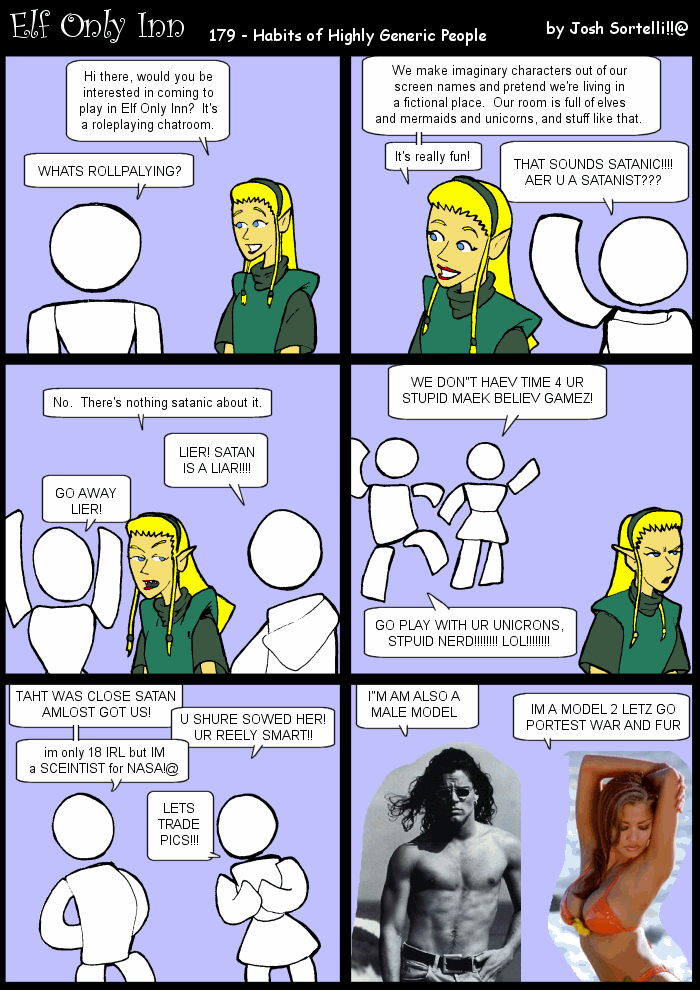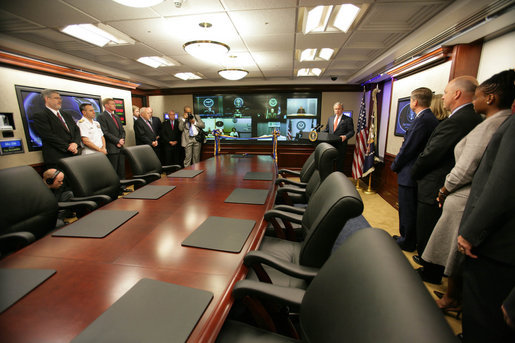Since the transition, Mike Gerard's days started at 5am sharp, in order to allow him to start the day with a run. That involved a protection detail from the Secret Service. Gerard was known in the WH as a fitness nut, a guy that pulled himself back from injury during his days in the Army and put himself back together. He wasn't the only man in DC that was up at this hour jogging in the vicinity of DuPont Circle. Exercise was one of the coping mechanisms for White House Staffers.
It was his chance to clear his head and prepare for the morning. There was a phone, and then a tablet and then other means of communication, but he ignored the incoming mail, the flood of info that came in over the course of any given night that was routine info, keeping track of so much political news as well as specific departmental warnings.
That assumed he didn't get a call in the night. He knew the cycle well, he worked for John Kerry as SecState and was prepared for it when he took AJ's job offer.
He had a couple of podcasts that he ran with, not necessarily political, but interesting, to help get his brain moving along with his body in the early hours, when the deep blue flushed pink and threatened a sunrise. He'd long since gotten used to the feeling of the prosthetic leg hitting concrete. He still wore long pants to try and keep the thing from becoming an object of notice, though he once had a guy say, "You should pin up the pant leg and use it for all it's worth." Campaign guy, but Mike was notoriously humorous about it, so he asked, "You mean like put a bumper sticker on it?"
The sun was about to start the ascent, but you could still see the stars. There were a lot of threats the administration would have to deal with. They inherited an America and a world at unrest. But all that seemed to pale in comparison to what was out there.
--
The Chief of Staff of the White House had a tremendous job, and in this White House, it was even more tremendous. They were a presidency already in crisis and got to select the staff for it, similar to how Churchill was able to bring in his people in 1940. AJ Shepard bucked party loyalty and went for the people who could get the job done, retaining some staff from the Biden/Booker presidency and bringing in Republicans.
There was fury on FOX, fury in the Freedom Caucus and fury among the Democratic party, because they hadn't been briefed. The Speaker and other leadership had been briefed and were, for the moment, staying very tight lipped. There were threats made to the effect, by the former federal prosecutor president, that leaks would be pursued relentlessly on this issue and so far the pax held.
But Mike knew, as he was whisked to the White House in a dark limo, already going through his tablet and all the things stacked up on it, that this would not hold long. Everyone knew it, and the first thing on the agenda was a bright and early morning meeting between the principals and several others to decide the best course of action on how to broach it to the American public.
To wit, there was an automated probe nearby in the Solar System, and it reached out to several world governments simultaneously -- the ones that had dishes pointed at space. This meant that the EU states knew, but so did Russia and the People's Republic of China. Putting aside for the moment that none of these states announced first contact, there was a thorny issue of how to do it, who to confer with and how much to say.
The probe was not AI, but it was able to conduct the basics of contact; the first message was a sort of code for first contact, an artificial pattern that was picked up by signals people, who then sent their own signals.
Once they sent back a standard first contact broadcast provided by SETI, the thing analyzed it and then was able to communicate back, in English, with a basic query for more info.
By the time they were feeding it raw text of great works of humanity alongside reality TV, the Probe was able to communicate more extensively and then told them, "Successful contact. Initiating Survey Report Protocol. Standby for further contact." It left a piece of itself there as a network node, to translate, and the bigger bulk of the thing disappeared.
The information that came from it from there on out was minimal.
But it was enough.
A Chief of Staff was an errand boy, an enforcer and a facilitator. The White House staff, all appointed, were drawn from a number of different sources, but there was a pattern. They went with younger people who had the stamina and energy in many of the roles because stamina would be a thing, including the press secretary who was a holdover, but otherwise staffed the Assistant roles with older heads, preferring people with an experience of just how complicated policy could be.
Mike was on the young side, but he felt like they had a team in place that could handle the day to day execution of the agenda. Selection on the basis of resume had a downfall -- it had the press sniffing for the story. They were wondering what was going on. For the most part, they'd gotten it wrong. They were speculating on Earthly matters, wondering if it was some sort of war with Russia or some sort of other nuclear crisis.
The White House, even at the early 6:30am arrival of the Chief of Staff, was already humming and moving right along; it never really stopped, but overnight staff had briefings and data prepared as the daytime staff came on. There was a lot going on, but he insisted on keeping himself neatly trimmed and carefully starched. The appearance of calm was important, looking frazzled was not an option. He'd moved out of the workout gear with a quick shower and into a navy suit and a crisp white shirt and a muted but textured burgundy tie - patterns were frowned upon in government. He was stretching it by keeping his beard, but the beard was there in Afghanistan and it was part of the image these days. Otherwise, he kept his hair down to a neat, but not high and tight, combed style that would pass as militarily acceptable, parted from the right.
It was a source of gentle ribbing from friends, including AJ, that there was a GQ magazine article on how he had to be lying about buying off the rack.
Despite his role, his office was a cramped space with a small desk dominated by two monitors, pictures of his wife and kids and a coffee mug that said, "I survived another meeting that should have been an email." Painted off white, with a low ceiling and packed with desks, he had a space to himself, but it was small. The furniture was surprisingly functional and not all that fancy -- he knew from direct experience that senators had nicer offices. The cabinet secretaries had offices in their respective buildings. The Eisenhower executive building had better offices. But when you worked in the White House, you were at the mercy of old architecture, shoehorned into a symbol.
But with that symbol came the realization that you were in the White House.
The phones were already ringing as the staff arrived, sucking down the coffee they got on the way to work, a mix of Starbucks, fancier stuff for those who cared, and cafeteria coffee from a kiosk set up for staffers. Keyboards were already clattering, in some cases, because this was It. Some of the most intense jobs on the planet, at a time when the planet was about to slip into an existential danger and opportunity.
--
The situation room was a long table with seats. Seats against the walls. Flatscreens against the walls. Mostly set to the news, because there was always monitoring of the political discourse in America. As a concession to modernity, the recent renovation involved a lot of extra plugs being put in so people could charge phones, laptops, watches and whatever else they needed. Mike occasionally wondered if they should have set up hooks for IV's so they could run lines of coffee, and Xanax, down to the people at the table. He carried a binder, a notebook, a laptop and a tablet along with him, and he had staffers carrying more. Others would be arriving in the same condition, loaded down with the data. So much of the job was sifting through to get to the most important bits. That was the exhaustion of this sort of job, the amount of actual, hardcore studying, reading of reports, that happened. Focus was everything here.
Once other filed in, with the principals at the table and the back-benchers, the staff and lesser positions sitting along the wall, it was Mike that started off the meeting, but it wasn't as if this particular meeting's topic was unknown.
Once the room was secured, they had the go ahead to start, "Good morning. The President has decided that we can no longer hold this information from the public much longer, it is not viable. We've done a good job until now of preventing leaks and keeping it quiet while gathering info. However, today's agenda is to lay out the options for rolling out Contact to the press and the world at large," he began somberly in that no-confusion-this-is-Massachusetts accent, standing at first, but settling into his chair as he opened the proceedings. There would be pictures of this for official release, so he stayed in his jacket.
There was tension around the room. How the information came out and the reactions among, for example, religious nuts, conspiracy theorists and cultists, could lead to a lot of chaos and confusion in this country and others. Beyond that, there would be a reaction in the UN, and then the politics of first contact as an international relations exercise, would begin as well. Haves, have nots, economic and strategic interests. The people in the room would lay out the various options for action and submit that to the president. As Chief of Staff, he'd be the one responsible for what landed on the President's desk. Theoretically the gatekeeper, Mike already knew that the best way to control the White House Staff was to have a mechanism for adverse advice to be heard up the line if necessary if someone lobbied hard enough. There were other White Houses where the alternatives were squelched. That wasn't on his watch, especially in a mixed 'Crisis' administration with a wider than usual spectrum of views.
The whole ball of wax. This was the team.
It was a huge decision with profound consequences. And the president wanted advice from the people he brought on to manage this chaos.
"Benton, this may be something we need to do at a press brief where we bring AJ in, if we do it fast," his expression and tone indicated he wasn't thinking in that direction but left it out there to consider and discard, "Otherwise, we need to look at the optics of scheduling an address and what forum to do it in."
And figuring out that part was where the fun started.

